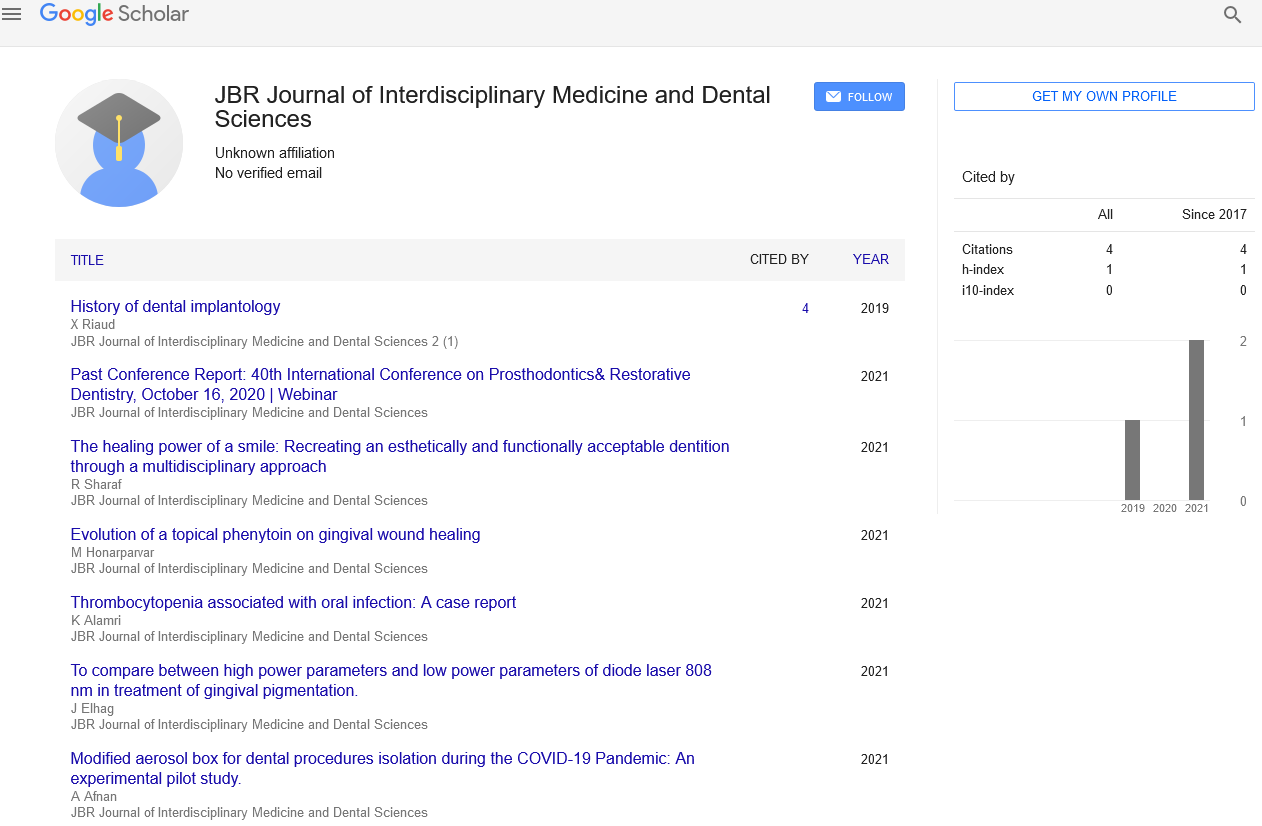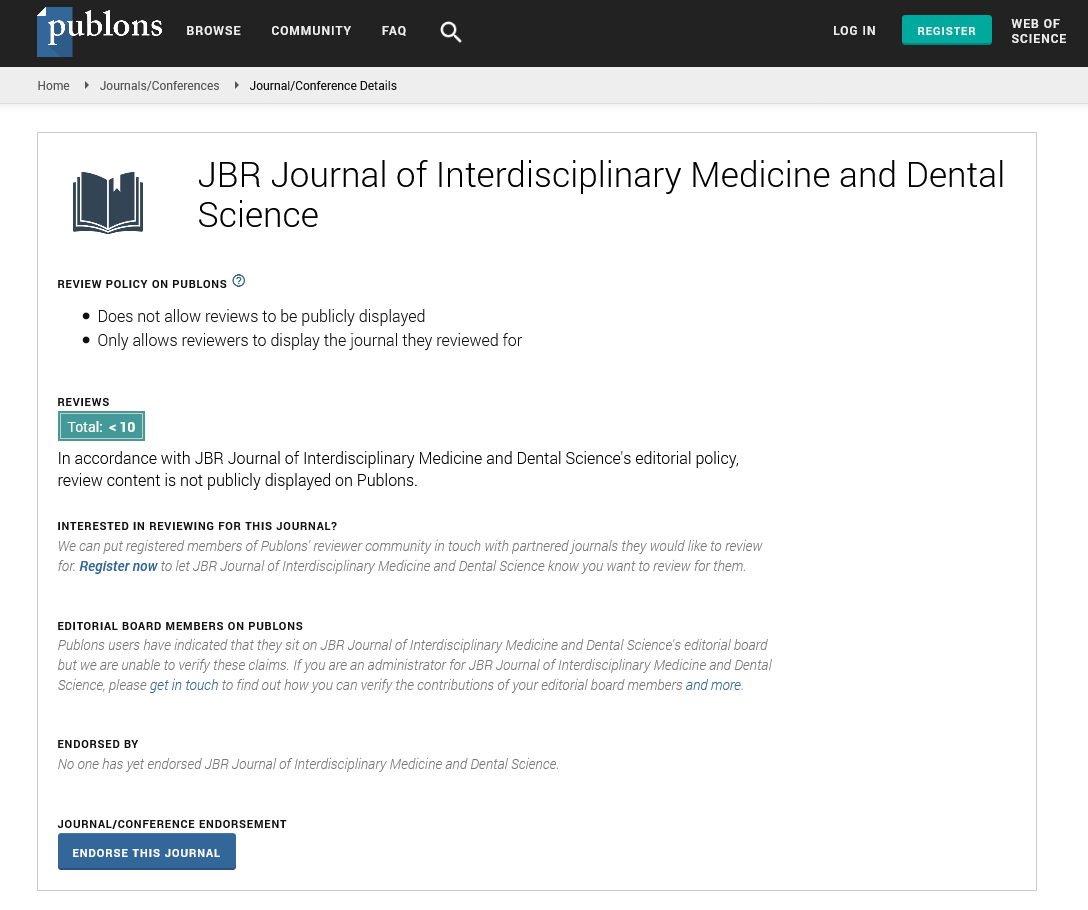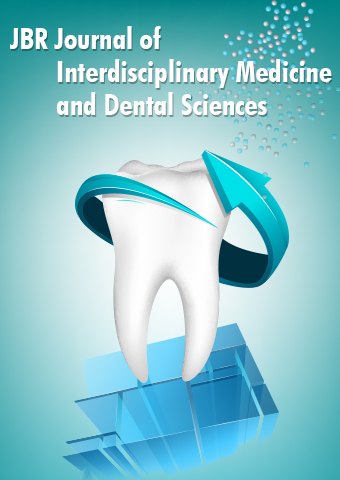Perspective - JBR Journal of Interdisciplinary Medicine and Dental Sciences (2023) Volume 6, Issue 3
Health Related Lifestyles Relates Behaviour and Sexual Habits among Young Adult Males Italian
- Corresponding Author:
- Shareen Truman
Department of Health and Caring Sciences, University of Stanford, United States
E-mail: ShareenTruman54@gmail.com
Received: 09-Dec-2023, Manuscript No. jimds-23-83038; Editor assigned: 12-Dec-2023, PreQC No. jimds-23-83038 (PQ); Reviewed: 26-Dec-2023, QC No. jimds-23-83038; Revised: 28-Mar-2023, Manuscript No. jimds-23-83038 (R); Published: 05-Apr-2023, DOI: 10.37532/2376- 032X.2023.6(3).32-33
Introduction
Young adult males are more prone than other people to exhibit health risk behaviours. To support successful preventive psychological and educational programmes and treatments, it may be crucial to use particular data regarding health risk behaviours in this group. To give a thorough account of sexual practices, drug associated behaviours, and lifestyles relevant to health that in a large sample of Italian young adult males can have a negative impact on fertility, the sexual realm, and health. Methods an online survey with 39 multiple choice items was given to a sample of guys in their last year of high school, ranging in age from 18 to 21. The survey asked questions about sexuality and sexual practices as well as lifestyle choices linked to health and drug use. There were descriptive analyses done. Main end measure: Information on sexuality, drug use, and healthy lifestyles was included in the outcome measures. And sexual practices mentioned by Italian young men. Health related lifestyles: 92.9% of the sample said they exercised at least once a week. 90.3% of respondents said they followed a Mediterranean diet, whereas 8.1% said they followed a hyperproteic diet. Addiction related behaviours: Of the sample, 33.8% admitted to smoking tobacco at least once, and of them, 71% said they still do so now. Smoking 40.2% admitted to drinking alcohol five to seven days a week. Of the sample, 32.9% admitted to taking drugs right now. Sexual orientation and sexual behaviour: 97.1% of the respondents identified as heterosexual. 73.3%, 58.7% of participants said they knew “excellent/good” or more about sexually transmitted illnesses. Only 4.8% of women reported having a seminal liquid test. In the biggest sample, 50% of participants admitted to having engaged in sexual activity. And sexual practises mentioned by Italian young men. Health related lifestyles: 92.9% of the sample said they exercised at least once a week. 90.3% of respondents said they followed a Mediterranean diet, whereas 8.1% said they followed a hyperproteic diet. Addiction-related behaviours: Of the sample, 33.8% admitted to smoking tobacco at least once, and of them, 71% said they still do so now. Smoking 40.2% admitted to drinking alcohol five to seven days a week. Of the sample, 32.9% admitted to taking drugs right now. Sexual orientation and sexual behaviour: 97.1% of the respondents identified as heterosexual.
Description
The participants understanding of sexuality and sexually transmitted diseases was graded as “excellent/good” by 73.3% and 58.7%, respectively. Only 4.8% of women reported having a seminal liquid test. In the biggest sample, 50% of participants admitted to having engaged in sexual activity. Protected gender in proportion reported having at least one sexual problem out of the sample. 18.7% of participants, or 88.6%, admitted to using pornography daily. The current study brought attention to the need to increase the number and effectiveness of preventive interventions in order to encourage healthy behaviours in the young male population of Italy. Numerous studies have shown how effective psychosocial and educational programmes and interventions are at preventing risk behaviours in adolescents and young adults, lowering the prevalence of STDs, and encouraging healthy behaviours. In particular, young adult males represent a demographic with a greater prevalence of health risk behaviours than their female counterparts. Young people are more prone to display health risk behaviours than older persons. Self-morbidity and mortality, as well as the morbidity and mortality of others, are all impacted by such a high incidence.
Others this gender gap is likely caused by a variety of social and cultural factors, many of which are connected to the stereotype of hegemonic and dominant masculinity. Generally speaking, young males are the group least likely to support health preventive behaviors. In recent decades, this gap has widened.
Conclusion
In Italy, where military duties (and subsequently military medical appointments) are no longer required, this tendency has grown. The American psychological association emphasises that, for men, heightened risk behaviours begin in early adolescence and recommends the need for specific health related prevention and education programmes targeting this population. The world health organization preventive medicine and health psychology scholars are increasingly pointing out that unhealthy behaviours and lifestyles affect morbidity, life expectancy, mortality, and health costs. The role that health education and preventative initiatives have in this area Young male have a determining role and are strategically targeted for this kind of intervention. Below is a quick summary of the key factors that influence whether young adult males advocate risky behaviours and experience health related issues.


